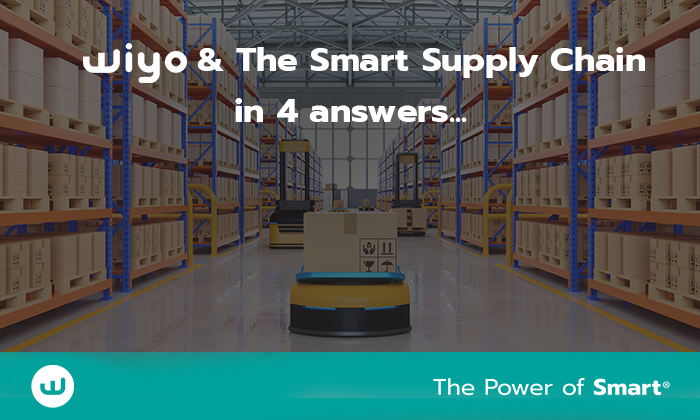Can Spain become a solvent player in the global microchip industry?
Semiconductors, which are measured in nanometres, are valued in the millions. Meanwhile, the palpable shortage to supply the entire industry continues to weigh down economic sectors such as the automotive industry.
“During 2021, vehicle production fell by 7.5% and in the first two months it has fallen by 15%,” sources from the Spanish Association of Automobile and Truck Manufacturers (ANFAC) tell RTVE.es. These days, the economic news pages reflect their uncertainty: Mercedes Vitoria reducing and extending its production shifts, the Ford Almussafes workforce in ERTE, production stoppages at Renault in Castilla y León…
The motor industry has other handicaps such as energy prices and the war in Ukraine, but the main stumbling block continues to be those tiny silicon plates. A single car contains between 3,000 and 5,000 microchips and the dependence on electric vehicles is growing, as is the case with so many objects in our lives, from mobile phones to hoovers.
Europe and Spain set out their roadmap
After months of stormy weather, the European Union and Spain have decided to act. The President of the Government, Pedro Sánchez, has announced a Strategic Project for Economic Recovery and Transformation (PERTE) endowed with 11,000 million euros with the intention of boosting the manufacture of microchips in Spain, from public-private collaboration. The sector’s stakeholders consulted by RTVE.es welcomed the news with applause, which represents an “extraordinary” boost and fills them with optimism.
“We are going to be able to develop semiconductors to satisfy industry sectors such as the automotive sector, and to innovate in new technologies that can be incorporated into the vehicles of the future,” says Danny Moreno, president of the Spanish Semiconductor Industry Association (AESEMI) and CEO of the company Wiyo, who shows the innovative component that, he says, already exists in Spain.
But many chips are currently being designed on Spanish soil, but they are always produced abroad. “Most of the companies we are doing everything but manufacturing. We do innovation, design, simulation, testing… We just have it manufactured and then we integrate it into our product for the industry”, Moreno explains.
It takes years to build a plant
The adventure ahead is long and difficult. The reasons are the same as those that explain the imbalance between supply and demand that has marked 2021: manufacturing semiconductors is expensive and requires very prominent technological plants.
“It can’t be done in two, three or four years,” says the president of AESEMI about plans to set up factories in Spain. According to Moreno, the so-called “clean rooms” where microchips are created and assembled have even higher standards than operating theatres in terms of dust filtration and contamination: “any small particle can spoil what we are doing”.
And for all that to work, the supply chain has to be very precise. “We need materials to manufacture the chips, silicon wafers, chemicals, metals, pure elements… It also requires very precise instrumentation, although fortunately Europe has one of the largest technology companies for chip manufacturing, ASML, which is in the Netherlands,” says Daniel Granados, a researcher at IMDEA Nanoscience, in an interview on TVE’s Canal 24 Horas.
The problem of shortages will persist in the short term.
Thus, the solutions on the table are for the medium term. “At the moment, production centres are adjusting their production to adapt to the recovery of the microchip manufacturing rate, but this solution is not expected to be fully readjusted until the beginning of 2023,” agreed ANFAC sources.
Similarly, a Deloitte report predicts that many of the semiconductor shortage problems will remain through 2022, if only less acute thanks to improvements in manufacturing and distribution that are being put in place.
“More and more will be produced in the US, China, Japan, Singapore, Israel and Europe, a trend known as ‘localisation’, which increases chip production closer to the next step in the supply chain,” the consultancy says.
Moreno therefore hopes for a plan that, on the one hand, begins to develop the domestic industry and, in parallel, attracts “established industry to fill the gaps”.
A market in the hands of a few
The growing global market for microchips is currently in the hands of a few. US-based Intel is the leader in the entire production process (design, manufacturing and assembly), while Taiwanese foundry TSMC dominates the second of these three phases.
The third player, by volume, is Samsung Electronics , of South Korea, although China’s SMIC should not be overlooked either. Like all economic struggles, this one also has a geopolitical aspect, and the three international giants have lined up to take advantage of Beijing, which is the main buyer for its technology industry.
One of the scenarios in this race is in Europe. The European Union has finally reacted to the supply problems of a strategic product such as semiconductors and aims to manufacture 20% of the chips that will be produced globally by 2030. The European Chip Law was the first step in a trail that Sanchez seems to be continuing with PERTE.
In addition to the public disbursement of European funds, Intel, TSMC and Samsung have announced investments for factories in the EU, but the US company does not expect to be operational before “the end of 2027“.
Europe’s lagging position in this market is relatively new. “In 2000, Europe was one of the world’s leading semiconductor producers, accounting for almost 25% of global manufacturing capacity. Today, production has fallen to 8%. An even more drastic decline has occurred in high-end semiconductor technology, with the market falling from 19% in 2000 to zero today,” says consultancy Kearney in a report last year.
As with face masks, production was offshored and outsourced to cheaper Asian factories during the first decades of the 21st century. The process was taken to AT&T’s semiconductor factory in Tres Cantos. Today, a few are still standing in Germany, Switzerland or Austria.
A change of air in industrial policy
However, the latest moves by Brussels, the use of NextGenerationEU funds and flexibility in post-pandemic spending seem to show a change of mindset in industrial policy in Western governments, although there are nuances.
“When one looks closely at the investment figures, one finds that they pale in terms of percentage of GDP compared to those put forward by the other two major world markets, China and the US. Spain, moreover, has taken a relatively moderate stance compared to countries like Italy, which have tried to make the most of the credit available,” comments political economy analyst Roy Cobby to RTVE.es, who acknowledges the influence of a “complicated debt situation”.
Cobby sees some problems, such as the development of projects far removed from the citizenry or the lack of continuity. “Although the PERTEs have been designed as instruments with a long-term vision, it is not clear that successive governments will maintain them given the current polarisation,” he warns.
Like the car manufacturers’ association ANFAC, the analyst fears that the measures will fall short, although his prescriptions are different.
“Let’s imagine that public support for foreign investment in microchips is accompanied by compensatory measures such as, for example, the obligation for the investor to transfer certain knowledge to Spanish suppliers so that they can improve their production capacities in the future,” explains Roy Cobby, on the usefulness of public procurement to improve the competitiveness of a sector such as the automobile industry.
ANFAC sources, for their part, call for a boost to “recharging infrastructures, efficiency of demand support plans and a positive fiscal reform for the automobile that meets the dual objective of advancing decarbonisation and achieving recovery”.
The training of professionals and the management and direction of these projects are other challenges in forming this production network that will give a boost to the Spanish semiconductor-based industry.
The sector is keeping its fingers crossed. In the words of IMDEA Nanoscience researcher Daniel Granados: “11 billion could be enough, but it is important to bear in mind that there are very few ways to get it right, but many ways to get it wrong. I hope that the government has a plan and that it is a proposal that will lead us to a successful outcome.



